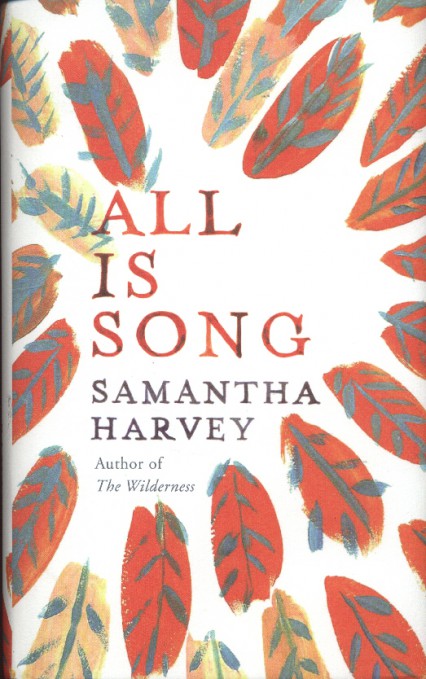Laura Wainwright reviews the second novel by Samantha Harvey, All is Song.
‘Surely it is the most blameworthy ignorance’, writes Plato in The Apology, ‘to believe that one knows what one does not know’. Plato, of course, does not present these words as his own but as those of his mentor, Socrates; The Apology claims to be a faithful transcription of Socrates’ own defence at his trial, where he was indicted for his sinister ‘innovations in religious matters’ and for ‘corrupting the young’. Plato’s Socrates eloquently dismantles these allegations, tracing his behaviour and rigorous mode of philosophical enquiry back to a singular, fundamental wisdom – to the resolve that (in his words) ‘I do not think I know what I do not know’.
The affinities between the Socrates of Plato’s dialogues and William Deppling, the questioning, charismatic and stubbornly idealistic figure at the centre of Samantha Harvey’s quietly compelling second novel, All is Song, though never explicitly acknowledged in the text, are both immediately plain and subtly educed. Echoing Socrates’ disavowal of the role of teacher and of conventional wisdom, William, who is in his fifties and living in twenty-

by Samantha Harvey
288pp, Jonathan Cape, £16.99
The view showed smoke not more than half a mile away to the east. It was pushing the night apart with a strange, muscular solidity.
Observing this elementally shifting outlook is William’s younger brother, Leonard, who soon finds himself helplessly entangled in William’s situation and in the ethical vexations that it entails. Unlike William, who, echoing Socrates’ ‘divine or spiritual sign’ – a ‘voice’ that he claimed began guiding him in childhood – has apparently always ‘heard the voice of the Lord’ in the form of a ubiquitous ‘sonic and subsonic [. . .] song’, Leonard is an atheistic religious studies teacher, recently returned to London from Scotland where he has been tending to their dying father. William, we learn, did not even attend the funeral:
‘Scotland was difficult,’ Leonard said, in answer to the unasked questions. How was your trip? How have you been? He knew William would never ask. ‘I wish you’d been there, William, at least for a visit.’
Like Harvey’s first novel, The Wilderness, which movingly yet unsentimentally configures the history and experience of a man with Alzheimer’s, All is Song is brilliantly and absorbingly attuned to these kinds of human contradictions and inconsistencies, absences and silences. Both novels, which Harvey has previously revealed, ‘in a very profound way’ share ‘a relationship’, seem fundamentally and self-
He [Leonard] saw the man perching upright into his own fate with determined indifference, and he realised something that was always true – that the very act of even looking at his brother was one of reconciliation between these two opposite views of love and frustration, love and anger, and most often love and incomprehension.
Perhaps this concern was, in part, what attracted Harvey to the historical figure of Socrates. Fatally misunderstood in his own lifetime – he took a dose of poison while awaiting execution in prison – Socrates also never wrote down any of his thoughts or experiences, so that everything that we know about him is derived from others’, particularly Plato’s, accounts. All is Song lends this so-
You might also like…
Harper Dafforn delves into the seventh novel by the award-winning writer Kamila Shamsie, Home Fire is available from Bloomsbury.
Laura Wainwright is a frequent contributor to Wales Arts Review.











